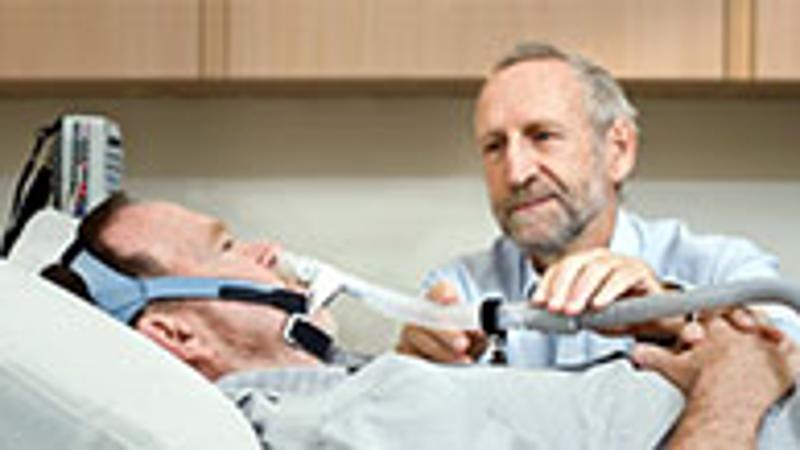
Brisbane sleep experts are attempting to fight fatigue caused by insomnia and obstructive sleep apnea by treating the two conditions at the same time.
Led by QUT in partnership with The Prince Charles Hospital, the study will offer drug-free treatment for both conditions, providing fresh hope for the thousands of people who experience severe fatigue and daytime sleepiness.
Sleep researcher Associate Professor Simon Smith, from QUT's Centre for Accident Research & Road Safety - Queensland (CARRS-Q) said the trial being conducted at The Prince Charles Hospital would test if insomnia therapy could improve sleep apnea treatments and lead to better overall sleep quality.
Professor Smith said untreated sleep disorders had a significant impact on sufferers and their families.
"Many people can have an occasional bad night's sleep but when that bad night becomes a pattern and continues for more than a few months, it can have a significant impact on a person's daily life," Professor Smith said.
"For example, on-going poor sleep can lead to a lack of concentration, increased injury risks, social problems, or just being tired, moody and irritable a lot of the time. These problems can all have an effect on work, family relationships and a person's health."
Professor Smith said volunteers were being sought to take part in the six month trial, and there was a website for people to self-assess if they were suitable to take part.
"This trial is for people who think they may have, or have recently be diagnosed with insomnia and sleep apnea but are not currently undertaking Continuous Positive Airway Pressure (CPAP) treatment or Cognitive Behaviour Therapy," he said.
"Symptoms of these two sleep conditions include snoring, day time tiredness, and mood changes as a result of a lack of good sleep."
He said obstructive sleep apnea was a condition where a person stopped breathing for short periods of times while they were asleep, and was caused by the narrowing or collapsing of the airway in the throat.
"While it is becoming much more common, especially in people over the age of 45, it remains undiagnosed in many people," Professor Smith said.
"Insomnia is perhaps the most common sleep disorder, with around 15 per cent of the population affected. While insomnia is sometimes treated with medication, non-drug treatments can be most effective."
"About 30 per cent of patients with sleep apnea also have insomnia. The combination of these disorders may make it harder to manage each disorder in isolation. A combined approach that provides the gold standard treatment for both disorders needs to be trialled."
Professor Smith said the trial would investigate whether Cognitive Behaviour Therapy could be used to improve sleep apnea treatments.
"What we are offering is the gold standard in treatment for these two sleep disorders," he said.
To self-assess your eligibility to take part in the trial, visit here
RELATED STORIES
QUT tracks racers fighting the sleep monsters
Back off: Have your say on tailgating
Winners of the 2015 Queensland Road Safety Award announced
Media contact:
Sandra Hutchinson, QUT Media (Tue, Wed), 07 3138 9449 or media@qut.edu.au
After hours, Rose Trapnell, 0407 585 901




